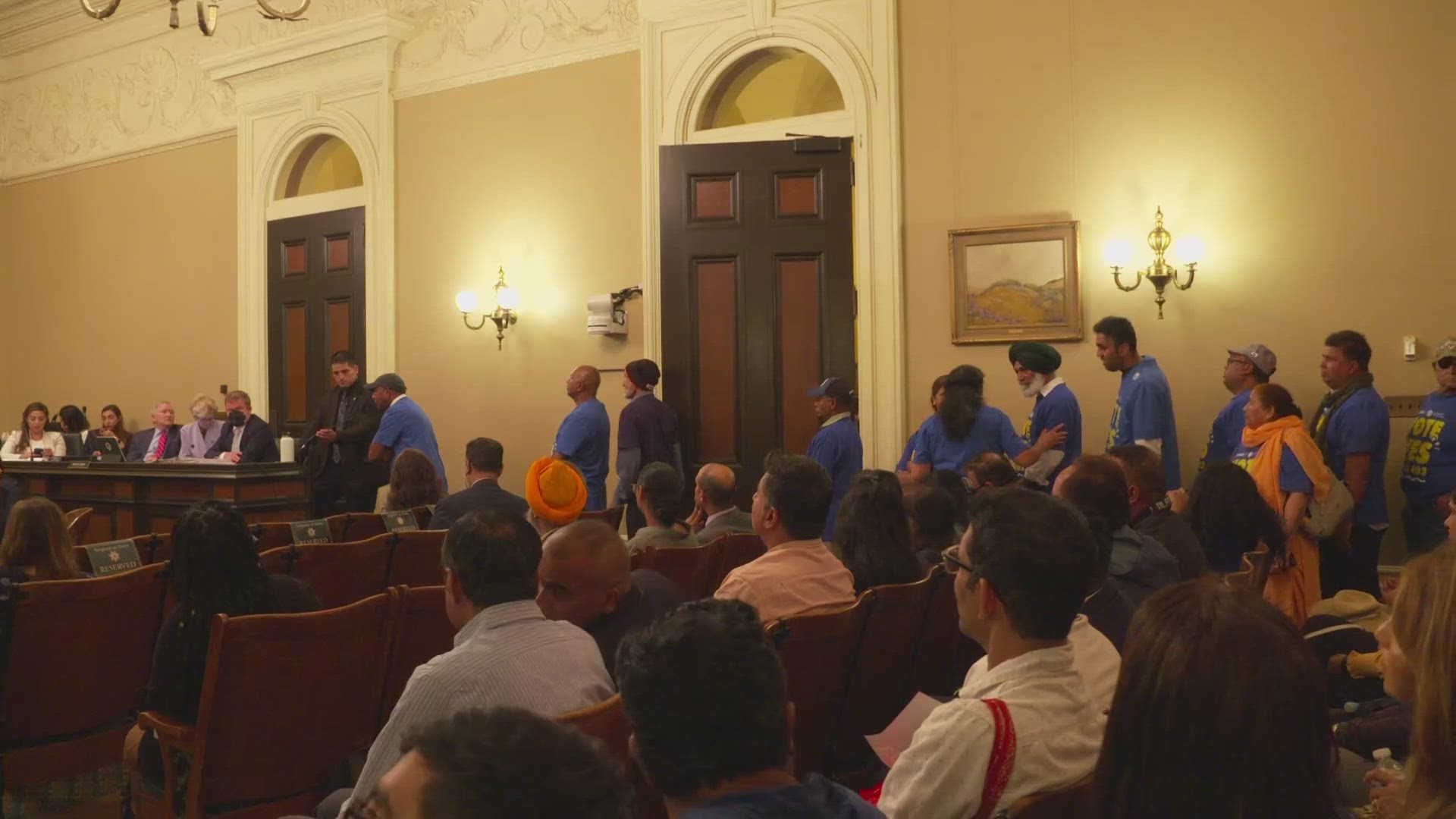SACRAMENTO, Calif. — There wasn’t an empty seat in sight during a hearing Wednesday afternoon as a crowd hoped to testify on a California bill that’s been wrapped up in a contentious debate.
The Assembly Judiciary Committee held a hearing for Senate Bill 403, aimed at banning caste discrimination. If the bill is passed, California could become the first state to ban caste-based discrimination in the U.S. by adding caste as a protected category to the state Unruh Civil Rights Act and fair housing and employment laws.
In California, Asian Americans or Pacific Islanders make up 15% of the population, according to the Public Policy Institute of California. And nearly 1 million Californians self-identify as South Asian including Indian, Pakistani, Nepalese, Sri Lanken, Bangladeshi and Bhutanese.
Indian Americans are one of California's fastest-growing groups making up the third largest Asian ethnic group in the state.
Many in the South Asian community are concerned about the implications of the bill, while others believe it’s a step in the right direction.
What is the caste system?
India’s caste system is one of the world’s longest surviving social hierarchies.
Caste was a system of social distinction that evolved into more rigid hierarchies, the Fourfold division of Society: Brahmins (priest class), Kshatriyas (warriors), Vaishyas (business class) and Shudras (laborers). Over time, there were two ways to distinguish between castes based on occupation and ritualistic hierarchy, how “pure” someone was.
This affected people in a number of ways.
“In the job market or in admissions and education institutions in India where there are reservations, because of affirmative action, that's when people write down their caste... Also commonly, this information is exchanged when marriage takes place,” said Sudipta Sen, UC Davis professor of history.
In 1949, discrimination based on the caste system was outlawed in India, but it continues to influence society.
“People have been living with caste hierarchy for hundreds of years despite law in independent India to actually stop the discrimination legally,” said Sen. “These historic forms of inequality are embedded in the way in which life is lived out and how society is reconstituted, even in the United States, far away from the Indian homeland, that people, these ideas carry or travel with people.”
While the caste system originated in Hindu scriptures and was influenced by colonial rule, it’s important to note that Western media has often conflated the caste system with the Hindu religion and Indians exclusively. In actuality, the caste system has influenced the South Asian diaspora and many religions have social hierarchies originating from the caste system.
Where do people stand on the bill and why?
Those in favor of SB403 to make lower caste a protected class in California say caste discrimination has led to wage theft, bias and in some cases, even harassment in the workplace.
“This is extremely important because caste is an issue that doesn't just affect people from Asia, but also affects Somalians, Nigerians Japanese,” said Tarina Mand with the Racial Justice Task Force. "It's a global issue that needs to be addressed in this country.”
Mand is also the past president of the South Asian Bar Association in San Diego. She said the system is alive and well in the state.
“I don't know if any of you have watched Indian Matchmaking. I think that's the perfect example to really explain what the caste system does here,” she said. “You have third generation, fourth generation Americans who still believe in the caste system. So, this is clearly an issue.”
Those against it like Pushpita Prasad, a board member of the Coalition of Hindus in North America, said the bill has the opposite intended effect and will actually make them targets for discrimination.
“It stereotypes and profiles one community based on something we can’t control, which is our birth,” said Prasad. “So, we really ask our legislators to reject it, and to really stop platforming hate against a minority community.”
She also takes issue with the fact that she said there is not enough data to prove caste discrimination in California is really an issue.
“Many times there is an attempt to fuddle the issue by talking about issues halfway across the world in the Indian subcontinent,” she said. “But I'm an American citizen, and I'm a California resident, and I'm appealing to California lawmakers to show me the proof of any problem in California before you start to victimize us.”
What’s next?
The bill passed the Assembly Judiciary Committee and is now headed to the Appropriations Committee where all bills that have a fiscal impact are voted on. If it passes the Appropriations Committee, it will head to the Assembly floor for a full vote.
Additional reporting done by ABC10's Sabrina T. Sanchez and Katie Kim.
Editor's note: In the broadcast piece we reported the caste system made its way into South Asia with the arrival of the Portuguese. We would like to clarify that while the term 'caste' is derived from the Portuguese language, the practice of caste originated in ancient India



















